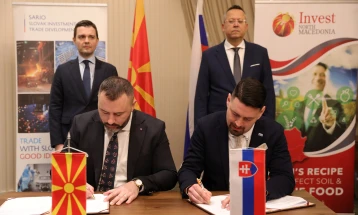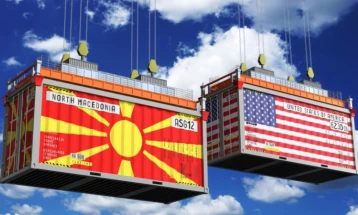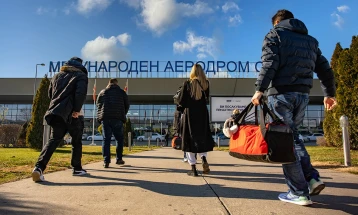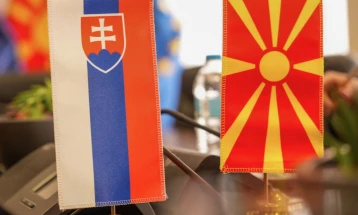Geopolitical tensions and long-term macroeconomic challenges: central bank governor
- Current geopolitical developments could have long-term consequences on globalization, and this has reflected especially on less developed economies, National Bank Governor Anita Angelovska-Bezhoska told a conference hosted by the central bank of the Netherlands.

Skopje, 11 February 2023 (MIA) - Current geopolitical developments could have long-term consequences on globalization, and this has reflected especially on less developed economies, National Bank Governor Anita Angelovska-Bezhoska told a conference hosted by the central bank of the Netherlands.
The conference brings together central bank governors and representatives of member-states of the Dutch-Belgian Constituency within the International Monetary Fund (IMF), as well as IMF Managing Director Kristalina Georgieva, the National Bank said in a press release.
Angelovska-Bezhoska, who moderated one of the conference panels, said the latest World Economic Forum report on global risks lists geo-economic conflicts among the top three global risks, alongside the crisis related to living costs and climate change.
"Globalization has produced many benefits, including a rising trade, financial and technological integration, as well as increased global income. This is especially seen in less developed economies, where globalization is a generating force for income convergence and getting more than one billion people out of poverty, from 43.6 percent in 1981 to less than 10 percent in 2019. Moreover, globalization is one of the significant factors for the drop of the global inflation during the pre-pandemic period," said Angelovska-Bezhoska.
The pandemic and the war in Ukraine, she added, represent a significant test for globalization. Trade fragmentation costs, the opposite process to globalization, are estimated at 0.2-7 percent of the global GDP. The effects from this are more highlighted in developing economies, especially the small ones, which are dependent on the larger ones when it comes to trade and technology.
"These global trends are relevant for the economies of Central, Eastern and Southeast Europe, where free movement of goods, finance, technologies and knowledge are the generators of economic growth and convergence," noted Angelovska-Bezhoska.
She concluded that the region required strong interaction and integration with developed European economies, considering the current state of already slowed down convergence and the need to respond to the latest challenges such as digital and energy transformation of economies, reads the press release.







